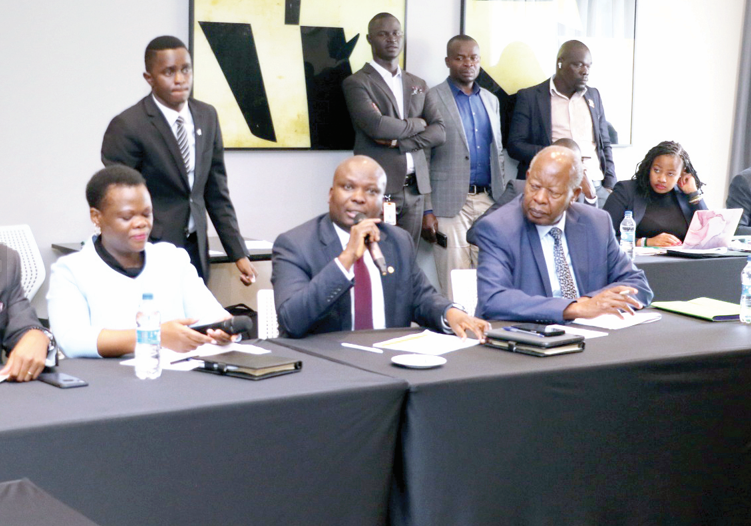Accountants body raises concern over revenue leakages
By Noel.Wandera, May 29, 2024Institute of Certified Public Accountants of Kenya (ICPAK) has urged lawmakers to scrutinise the government’s austerity measures to enhance transparency, shape policy reforms, foster public confidence, and guide future economic strategies.
It reckoned that a thorough review of the implementation and impact of these measures could lead to greater accountability and ensure efficient resource utilisation.
Members of the accountant’s lobby group led by Chairman Philip Kakai (pictured)who made the call in a presentation to the Parliament’s Departmental Committee on Finance and National Planning on the Finance Bill 2024 yesterday.
Austerity measures
The institute specifically called for an assessment of the uptake and impact of austerity measures already established by the Executive Office of the President.
National Treasury and executive have been under intense pressure to streamline roles at national and county levels, adopt efficient resource allocation, reduce transfers to state enterprises and regularly audit payroll.
They have also been asked to adhere to the Public Finance Management (PFM) Act and Salaries Review Commission pay adjustment recommendations, steps seen as crucial to enhancing financial management and discipline.
ICPAK highlighted the issue of revenue leakages, corruption, and resource misappropriation, which they believe erode taxpayer morale and foster tax apathy. These losses, they argued, hinder the government’s ability to deliver services proportional to the taxes Kenyans pay.
The institute identified complicated tax systems, discretionary power on exemptions, and a culture of corruption as key contributors to revenue leakage.
“Revenue leakage is caused by various reasons such as complicated tax systems, discretionary power on exemptions, as well as a dampened morale to pay taxes occasioned by the culture of corruption,” ICPAK said.
In response, ICPAK urged for a revision of the penalty system for tax evasion, the development of a change management strategy to tackle income tax issues, and the use of simplified technology solutions to improve the integration of taxpayer information systems.
The institute recommended a collaborative approach among all three arms of government to reduce revenue leakages and avenues of corruption.
More Articles

